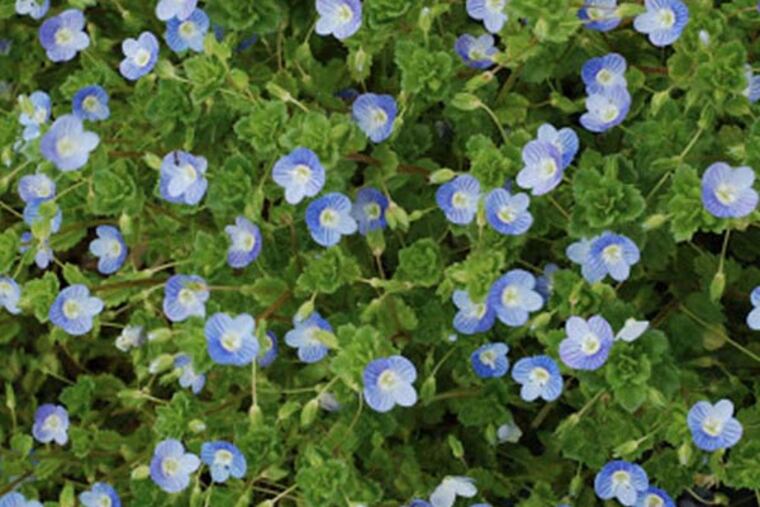Don't kill those 'weeds,' cook with them!
Forager Casey Spacht sees possibilities for dinner everywhere.

FORAGER Casey Spacht sees possibilities for dinner everywhere. The organic farmer and general manager of Lancaster Farm Fresh Cooperative urges you to think twice before ignoring, or killing, these common plants.
"When you hear the word 'foraging,' images come to mind of folks dressed in woodsy gear traipsing deep into the forests searching for rare mushrooms or strange plants," Spacht said. "And that does happen. But you don't have to go into the woods to find a wealth of food. It is growing right under your nose. Even in the city sidewalks."
Here are some examples:
Field speedwell: This lovely early bloomer makes a refreshing tea. Boil and steep 2 cups water and a handful of fresh, washed speedwell. Add honey or other herbs and spices to taste.
The beautiful tiny blue flowers, along with the rest of the plant, can be used as an expectorant for coughs, as a digestive aid and a blood cleanser. Remove those toxins! Freshen that skin!
Dead nettle: Used in soups, salads and teas, nettle can be eaten cooked or raw. The leaves, flowers and stem are all edible. The plant is high in iron and fiber and is a great detoxifier, astringent and diuretic.
Spring onions: You'll find clumps of this stuff growing on your lawn. It's usually taller than surrounding grass and has a thin, rounded, hollow stalk. Sometimes the ends curl up.
The best way to identify these fellas is to smell them. If it smells like onions, it's onions! Use them the same way you would use chives.
Dandelion: Called dynamic accumulators, dandelions are known for their ability to pull nutrients from deep in the soil via their long, strong tap roots. Packed full of iron, fiber, vitamin C and protein, dandelion greens can be used the same way you would any dark, leafy green.
- Beth D'Addono